
Rilla of Ingleside (1921) is the eighth and last in the Anne of Green Gables series by Lucy Maud Montgomery, but was the sixth "Anne" novel in publication order. This book draws the focus back onto a single character, Anne and Gilbert's youngest daughter Bertha Marilla "Rilla" Blythe. It has a more serious tone, as it takes place during World War I and the three Blythe boys—Jem, Walter, and Shirley—along with Rilla's sweetheart Ken Ford, playmates Jerry Meredith and Carl Meredith—end up fighting in Europe with the Canadian Expeditionary Force.
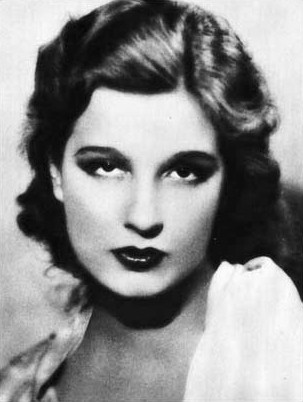
Lili Damita was a French-American actress and singer who appeared in 33 films between 1922 and 1937.

Anne of Green Gables: The Continuing Story is a 2000 miniseries television film, and the third installment in a series of four films. The film was highly anticipated among fans of Anne of Green Gables, and was the most controversial and heavily criticized of the three film adaptations written and produced by Kevin Sullivan.

This Is the Night is a 1932 American pre-Code comedy film directed by Frank Tuttle, and starring Lili Damita, Charles Ruggles, Roland Young, Thelma Todd, and Cary Grant in his film debut. It was made by Paramount Pictures.
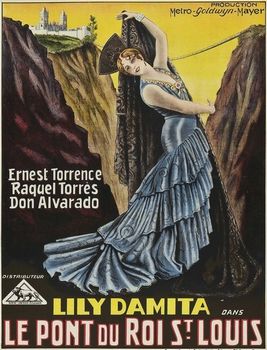
The Bridge of San Luis Rey (1929) is a sound part-talkie film released by Metro-Goldwyn-Mayer. The film was directed by Charles Brabin and starred Lili Damita and Don Alvarado. In addition to sequences with audible dialogue or talking sequences, the film features a synchronized musical score and sound effects along with English intertitles. The sound was recorded via the Western Electric sound-on-film process.
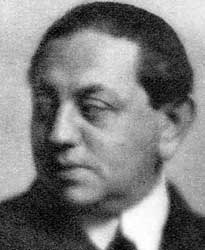
Paul Leni was a German filmmaker and a key figure in German Expressionism, making Hintertreppe (1921) and Waxworks (1924) in Germany, and The Cat and the Canary (1927), The Chinese Parrot (1927), The Man Who Laughs (1928), and The Last Warning (1928) in the United States.
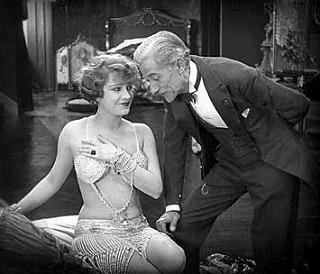
Das Spielzeug von Paris is an Austrian silent film released in 1925 and directed by Michael Curtiz. It was the first film to feature French actress Lili Damita in the leading role.
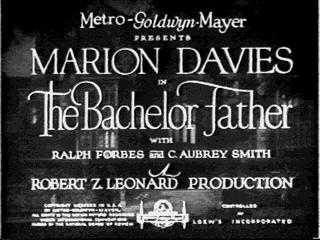
The Bachelor Father is a 1931 American pre-Code MGM comedy drama film directed by Robert Z. Leonard and starring Marion Davies and featuring Ralph Forbes, C. Aubrey Smith, Ray Milland and Guinn "Big Boy" Williams. It was based on a same-titled play by Edward Childs Carpenter, with Smith re-creating his role from the Broadway production. The plot centers around a stuffy British nobleman whose three grown children suddenly arrive at his estate and decide to move in with him.
Eduard von Borsody was an Austrian cameraman, film editor, film director, and screenplay writer.

Goldie Gets Along is a 1933 American pre-Code comedy film directed by Malcolm St. Clair and starring Lili Damita, Charles Morton and Sam Hardy. The screenplay was written by William A. Drake, based on the 1931 novel of the same title by Hawthorne Hurst.

Walter Rilla was a German film actor of Jewish descent. He appeared in more than 130 films between 1922 and 1977. He was born in Neunkirchen, Germany and died in Rosenheim, Germany.
Wolf Peter Rilla was a film director and writer of German background, who worked mainly in the United Kingdom.

Lisbon Story is a 1946 British musical thriller film directed by Paul L. Stein and starring Patricia Burke, David Farrar, Walter Rilla and Austin Trevor. It was based on the musical The Lisbon Story by Harold Purcell and Harry Parr Davies that ran at The Hippodrome in 1943. The screenplay concerns a cabaret singer and a British intelligence officer who travel to Berlin to rescue an atomic scientist being held there.
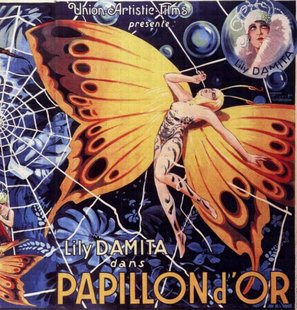
The Golden Butterfly is a 1926 Austrian-German silent drama film directed by Michael Curtiz and starring Hermann Leffler, Lili Damita and Nils Asther. It was based on the 1915 short story "The Making of Mac's" by British author P. G. Wodehouse. The film was released in the United Kingdom as The Golden Butterfly, in a form shortened to 5 reels, and had a limited release in the US under the title The Road to Happiness.

Brewster's Millions is a 1935 British musical comedy film directed by Thornton Freeland and starring Jack Buchanan, Lili Damita and Nancy O'Neil. It is based on the 1902 novel and subsequent 1906 play, with the action relocated from the United States to Britain.

Desperate Moment is a 1953 British thriller film directed by Compton Bennett and starring Dirk Bogarde, Mai Zetterling and Philip Friend. It is based on the 1951 novel of the same title by Martha Albrand.
The Woman on the Rack is a 1928 German silent drama film directed by Robert Wiene and starring Lili Damita, Vladimir Gajdarov, and Johannes Riemann. It was also known by the alternative title A Scandal in Paris. It was based on a British play by Edward Hemmerde and Francis Neilson. The wife of a British aristocratic politician, who is neglected by her husband, resists an attempt to break them up. When her husband discovers what he mistakenly believes to be a dalliance with another man he begins divorce proceedings. Eventually the truth comes out and the couple reconcile. The film was not considered one of Wiene's greatest achievements, but he was praised for directing with his usual competence while Damita's performance as Lady Admaston was hailed.

The Famous Woman is a 1927 German silent drama film directed by Robert Wiene and starring Lili Damita, Fred Solm and Warwick Ward. It was based on the play Die Tänzerin by Melchior Lengyel, who also wrote the film's screenplay. While performing in Barcelona, a dancer falls in love with a Spanish aristocrat. He proposes marriage to her providing she give up her profession. She agrees and the wedding preparations begin. When her troupe returns to Spain, however, she is drawn back to her true calling as a dancer and her aristocratic lover reluctantly allows her to go free. Damita's performance was particularly praised, as was the cinematography of Otto Kanturek who had done location shooting in Barcelona.

The Great Adventuress is a 1928 German silent comedy film directed by Robert Wiene and starring Lili Damita, Georg Alexander, and Fred Solm. Much of the film's funding came from Britain. Location shooting took place in Paris, Calais and London. The film's plot was criticised by reviews for lacking clarity.
Her Highness Dances the Waltz is a 1926 Austrian silent romance film directed by Fritz Freisler and starring Claire Rommer, Magda Karmen and Walter Rilla. The operetta film is based on the 1912 operetta Hoheit tanzt Walzer by Leo Ascher (music) and Alfred Grünwald (libretto).
















